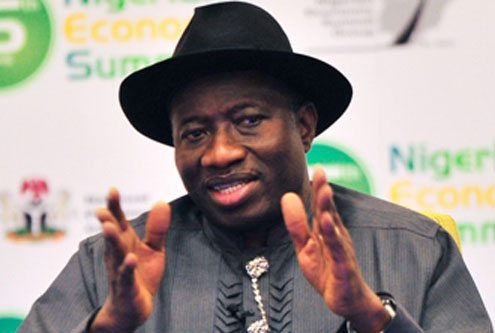No doubt the Nigeria Diaspora Commission will live up to its billing to assist in the participation of Diaspora Nigerian professionals and entrepreneurs in economic projects in Nigeria, creating conducive political, economic, cultural, legal and spiritual environment. However, this is not about semantics. This is the time to put grandiloquence aside, keep political sentiments in the cooler, elevate national interest above self, analyze the realities, the challenges of living in the Diaspora and examine specific ways the establishment of the Nigeria Diaspora Commission can be mutually beneficial. So, the question is ‘What do Nigerians in Diaspora really want to see in the Diaspora Commission’?
1. The Diaspora Commission should implement skills transfer schemes and programs directed at professionals such as doctors, engineers, professors and information technology experts. For the educational system, this can be achieved in practical terms, through mandating each of the Nigerian Universities, private or public, to reserve at least two faculty positions for Diaspora Nigerian professors who desire to do their sabbatical in Nigeria thus facilitating interchange of knowledge and sharing of ‘lessons learned’. For the non-academic professions, a competitive working environment should be put in place to attract Nigerian working abroad to fill human resource gaps in the country, including through recruitment services that facilitate and coordinate the recruitment of foreign-based Nigerians.
2. Welfare of Nigerians abroad is a fundamental objective of the Diaspora Commission and should go beyond rethoric. NIDCO should establish a Nigerian Diaspora Emergency Assistance Fund (NIDEAF), managed by the Diaspora Offices in countries that have a significant overseas Nigerianpopulation. This is NOT a Welfare system, but an emergency intervention program to help in providing exigent assistance to distraught, displaced or distressed Nigerians in settings where currently Nigerian Embassies and High Commissions abroad often turn their back. While I was serving as the President of the Nigerian community in the State of Georgia,USA, I have had to step in to rescue from the cold, fellow Nigerians who had became destitute, practically homeless, living on the streets, and helped to rehabilitate them and put them in homes/shelters. Quite a few Nigerians have become ‘socially challenged”, oftentimes due to not-at-fault extenuating circumstances. Such Emergency Assistance Fund will help the most deserving cases including:
a. Boarding and lodging for distressed Nigerians abroad
b. Provision of emergency medical care to the overseas Nigerians in need
c. Facilitating return air passage to those who are stranded overseas
d. Assisting with expenditure on incidentals and for airlifting the mortal remains back home where a sponsor is unable or unwilling to do so or the family is unable to meet the cost.
3. Healthcare system in Nigeria is in dire straits, to say the least. The Diaspora Commission should establish collaborative relationship with medical institutions and even medical facilities abroad. Many of them are open to exchange programs and surplus equipment donation. NIDCO should solicit more inbound “HealthMissions”, and work closely with ANPA, the Association of Nigerian Physicians in the Americas representing the professional, political and social interests of the 4000 plus physicians, dentists and allied professionals in the Americas.
4. There is no doubt that the financial capacity of majority of Nigerians in Diaspora to make significant investment is several limited, thanks to family members and ‘friends’ who constantly hound, harass and pester you, for money, even though they live well in Nigeria! In other to facilitate effective diaspora engagement, NIDCO should work with financial institutions and responsible government agencies in identifying specially packaged loans or other low-cost financing options for the eligible proposed diaspora’s projects to come to fruition. In other words, NIDCO should attract small and medium diaspora businesses through loans, credits, and matching funds arrangements.
5. Incentives such as diaspora-friendly tax regimes for the import of personal belongings and capital goods, as well as tax holidays during the initial period of investment are needed.
6. For Nigerians in Diaspora to be fully engaged in the political growth of the country, NIDCO should expedite the legislative representation of Nigerians in Diaspora in the National Assembly in tow with the passing of the Diaspora Voting rights. This is not far-fetched. Abuja is not a State in Nigeria, but has legislative presence in the House as Federal Capital Territory. We should have “Diaspora Territory” as a defined constituency to enable Nigerians in Diaspora to participate in the formulation of laws and constitutional direction of Nigeria. Such elected Representatives from Nigerians in the Diaspora will have the similar geographical spread and numbers as in the Diaspora Commission. a. North America-3, b. Europe-2, c. Canada-1, d. Asia/Australia 2, e. China-1, f. Africa-1, g. South America 1
7. Exemption of customs duty on all donated materials, especially for national emergencies, should be effected. The absence of this has made it difficult to negotiate donation of medical, science and engineering materials to Nigerian beneficiary entities. There have been cases where such goods have been at the port for months, sometimes abandoned or ‘confiscated’ by ‘unknown authority’.
8. To ensure a balance in the management of the affairs of Nigerians in Diaspora,NIDCO should encourage state governments to have Directorates of Diaspora with emphasis on engaging the Nigerians inDiaspora from their own States, the same way that Nigerian Missions abroad would have a ‘Diaspora Office.

9. That Nigerians in Diaspora remit about $20 billion annually is no longer news. Channeling remittances into productive investments is the challenge. Certain measures can be considered to this end. One such way is to generate development opportunities: NIDCO should encourage banks and other financial institutions to provide remittance investment and housing opportunities. Disseminating information to the diaspora on savings and investment options for remittances. Too many times, “dependable” family members and friends, under unstructured arrangements have been sad experiences
10. A Diaspora Housing scheme should be pursued by NIDCO.
In the same breathe, the Nigeria Diaspora commission should interact on level ground with all organized Nigerian communities in Diaspora, have egalitarian relationship with all registered organizations of Nigerians in Diaspora on the equitableplatform, with the same recognition and support, and NOT give any preferential treatment or ‘godfatherism” to NIDO. Several other Nigerian Organizations in Diaspora have more effectively served the interests of Nigeria Diaspora, promoted sense of belonging, practiced the ideals of ‘Nigerianism’, put service above self and not allow themselves to be motivated by prospects of contracts, political jostling or promises of land allocations in Abuja. “NIDO Desk” scrapped, and need to be replaced with the “Diaspora Office” in all Nigerian Missions abroad to adequately reflect the spread, genuineness and diverse coverage of the activities of the Nigeria Diaspora Commission
CONCLUSION
There is no question that both Nigeria and its diaspora will endure into future generations. NOW is the time for the passage of the Diaspora Commission Bill. Now is the time for Nigeria to create programs that reach out to our nationals living abroad, and harness their potentials for the benefit of the Nigerian economy. It is time to focus on developing stronger economic links with the Diaspora population, and encourage the return of young experts and the amelioration of further brain drain.
The choice before the Nigerian parliament is either to keep the country perpetually in the club of the underdeveloped world or tapinto the overflowing potentials of Nigerians living abroad and make the country a major player in global affairs. The first step in this direction is passing the Nigeria Diaspora Commission Bill to provide the platform for harnessingthis great human capital in foreign lands. Yes, we can. There is no other choice. If our elected officers in the National Assembly truly have the interest of Nigerians at heart, if the Honorable members of the House will honor their commission, then it is the path of honor, for our respected lawmakers to pass the Diaspora Commission Bill…..Now!
As National Assembly pushes ahead on the bill for the establishment of a Diaspora Commission, Nigerians living abroad must get involved in the passage of the bill. One of the ways to make a difference is to speak to members of the national assembly who are representing their constituencies in Nigeria. No we cannot give up on the National Assembly. Let us recall the words of one of our elder statesmen to “see hope in the great potentials that Nigerians have, when they are empowered, motivated and well led.” Let us “ see hope in the blending of the experience of the old with the energy and dynamism of the young…. We must therefore keep hope alive, and continue to bear with one another, as we move, all of us, to the great future that beckons us. There lies our hope for Nigeria. We are at the beginning of a new morning for our nation. The future looks very bright indeed. Clearly I see hope” in the passing of the Nigerians in Diaspora Bill. Now is the time!
ABOUT THE AUTHOR
Titus Olowokere is the Executive Vice President / CEO of the US-Nigeria Trade Council, President Emeritus of the Alliance of Nigerian Organizations in Georgia (ANOG) and Director of Administration of NICORE, an organization that facilitates the economic development of Nigerians and their communities in the United States of America. He writes from Atlanta, Georgia, United States of America. He can be reached at tolowok@usnigeria.org



